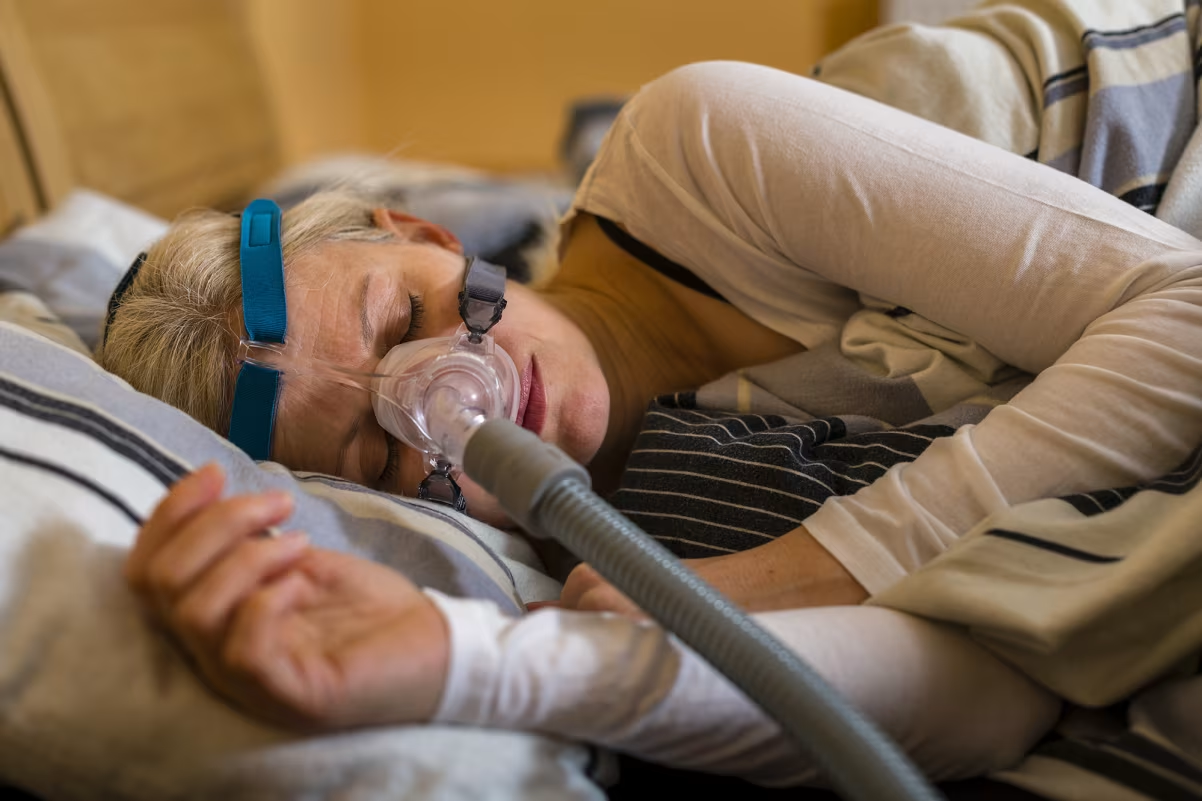Global — New research highlights a worrying link between obstructive sleep apnea (OSA) and the development of brain microbleeds, small lesions in the brain that can raise the risk of stroke, dementia, and cognitive decline. The findings reinforce the idea that untreated sleep apnea is not only a sleep disorder but also a serious neurological risk factor.
Understanding the Risk
Obstructive sleep apnea occurs when the airway repeatedly collapses during sleep, causing breathing pauses and oxygen drops. These intermittent hypoxic events strain the cardiovascular system and, as the latest study shows, can lead to tiny brain hemorrhages known as microbleeds.
People with moderate to severe OSA are at the greatest risk. These patients experience 15 or more breathing interruptions per hour, which appear to significantly increase the likelihood of developing cerebral microbleeds over time.
Why It Matters
- Early warning signs of brain disease: Microbleeds may be silent initially but are associated with a higher risk of stroke and age-related cognitive decline.
- OSA as a modifiable risk factor: Unlike many other neurological risk factors, OSA can often be treated effectively with CPAP therapy, oral devices, lifestyle changes, and positional therapy.
- Undiagnosed cases: Many people with OSA remain unaware of their condition, especially if they are not overweight or have subtle symptoms, making routine screening important.
Symptoms to Watch For
Individuals who may have OSA should be alert to:
- Loud or frequent snoring
- Gasping or choking during sleep
- Daytime sleepiness or fatigue
- Morning headaches
- Difficulty concentrating or memory lapses
If these symptoms are present, a sleep study may help confirm the diagnosis and determine the severity.
Treatment Can Protect Your Brain
Effective management of OSA not only improves sleep quality but may also reduce the risk of long-term brain damage. CPAP (Continuous Positive Airway Pressure) remains the most widely used therapy, keeping the airway open during sleep. Weight management, exercise, and avoiding alcohol or sedatives before bedtime can also help alleviate symptoms.
Broader Implications
This research emphasizes the importance of viewing sleep as a key component of overall health. OSA is no longer just a nuisance disorder affecting energy levels—it can have serious consequences for vascular and neurological health. Regular check-ups, early diagnosis, and proper treatment are vital steps to protect both sleep and brain function.
Final Thought
Sleep apnea is more than snoring. It is a silent threat to the brain that can go unnoticed for years. Awareness, timely diagnosis, and consistent treatment are essential to safeguard cognitive health and prevent potential long-term complications.















Leave a Reply